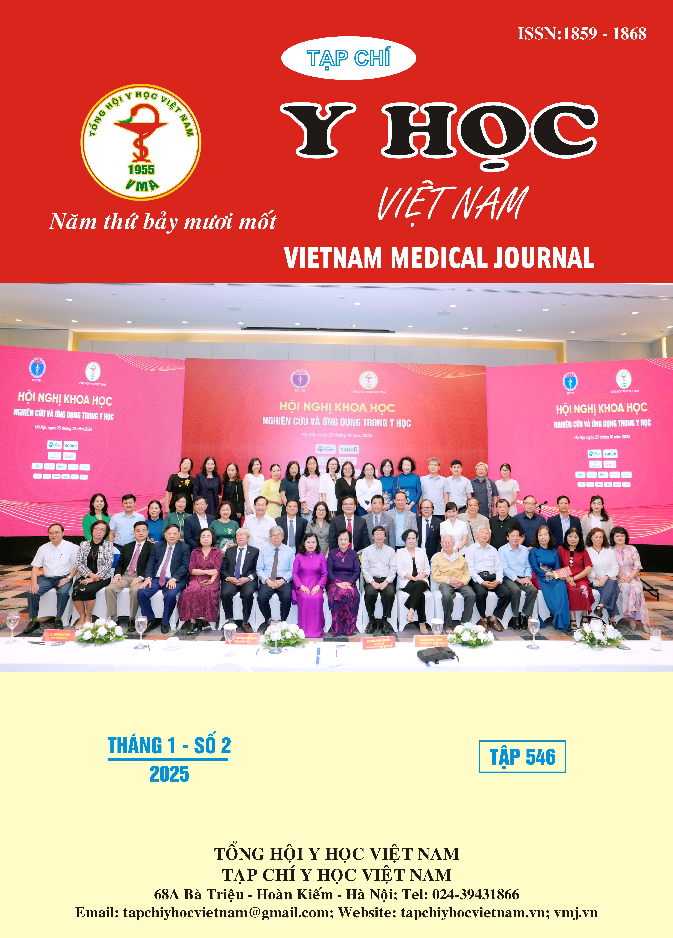DEVELOPMENT AND VALIDATION OF A QUESTIONNAIRE TO ASSESS STUDENTS’ KNOWLEDGE AND BEHAVIORS REGARDING ANTIBIOTIC USE
Main Article Content
Abstract
Objective: This study aimed to develop and validate a questionnaire designed to assess knowledge and behaviors regarding antibiotic use across students from non-healthcare disciplines. Subjects and Methods: A cross-sectional descriptive study was conducted to develop and validate a questionnaire, focusing on its content validity, internal consistency, and construct validity. Results: The initial questionnaire comprised 24 questions derived from relevant reference materials. Content validation was achieved through feedback and suggestions from a panel of experts on two separate occasions, with pilot testing implemented between these two assessments. A total of 138 students participated in the survey to evaluate internal consistency and construct validity. The final version of the questionnaire was streamlined to 11 questions, categorized into four groups: Group 1 - General Knowledge about Antibiotics, Group 2 – Misunderstandings in Antibiotic Use, Group 3 - Antibiotic Resistance, and Group 4 - Behavior Regarding Antibiotic Use. The Cronbach's alpha values for the finalized questionnaire across the four groups were 0.69, 0.75, 0.64, and 0.73, respectively. Conclusion: The questionnaire, consisting of 11 questions, was developed and validated, demonstrating good content validity, internal consistency, and construct validity.
Article Details
Keywords
Questionaire, antibiotics, knowledge, behavior, students.
References
2. Vietnam Tracks Multi-drug Resistant Bacteria. Accessed September 25, 2024.
3. Hậu PV, Hảo PTN. Kiến thức, thái độ và thực hành sử dụng kháng sinh của sinh viên Đại học Quốc Gia Thành phố Hồ Chí Minh, năm 2021. Tạp chí Y học Dự phòng. 2021;31(8):102-108.
4. Aithal A, Aithal PS. Development and validation of survey questionnaire and experimental data: a systematic review-based statistical approach. Int J Manag Technol Soc Sci. 2020;5(2):233-251..
5. Radhakrishnan R, Maheswary D, Leela K V., Damodharan N. Impact of clinical pharmacist’s educational intervention tools in enhancing public awareness and perception of antibiotic use: A randomized control trial. Clin Epidemiol Glob Health. 2023;19:101191.
6. Mahajan MM, Dudhgaonkar S, Deshmukh SN. A questionnaire-based survey on the knowledge, attitude, and practices about antimicrobial resistance and usage among second-year MBBS students of a teaching tertiary care hospital in Central India. Int J Pharmacol Res. 2014;4:175-179.
7. Li N, Huang J, Feng Y. Construction and confirmatory factor analysis of the core cognitive ability index system of ship C2 system operators. PLoS One. 2020;15(8).
8. Ngọc LTM, Hưng NP, & Nhân NH. Xây dựng và chuẩn hóa thang đo bộ câu hỏi khảo sát kiến thức, thái độ và ý định của người dân về sử dụng kháng sinh. Tạp chí Y Dược học Cần Thơ. 2023;(61):113-120.


